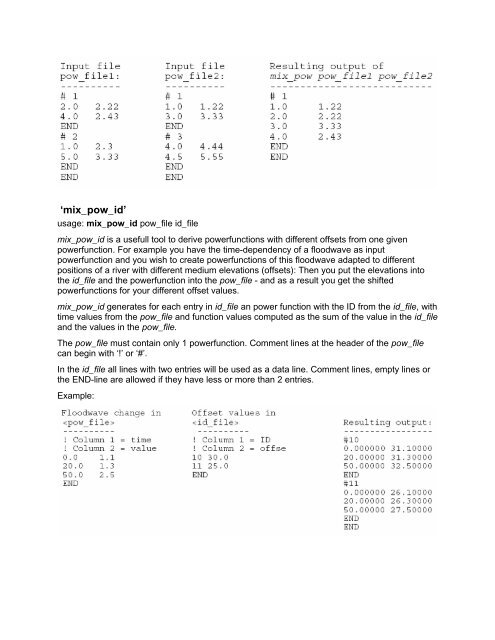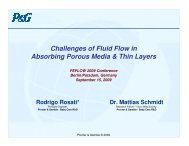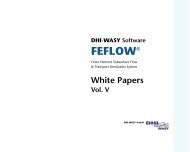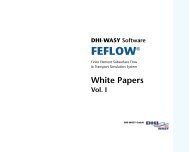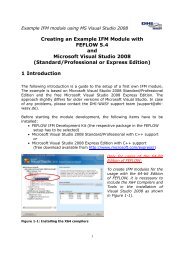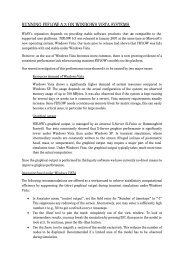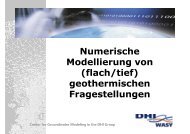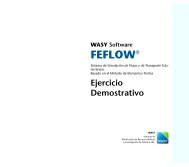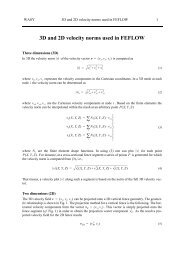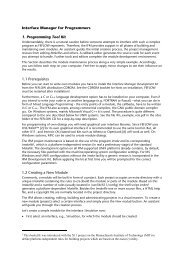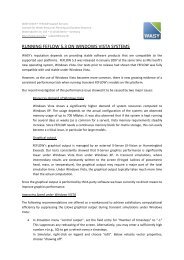Tools to convert, debug and - FEFlow
Tools to convert, debug and - FEFlow
Tools to convert, debug and - FEFlow
Create successful ePaper yourself
Turn your PDF publications into a flip-book with our unique Google optimized e-Paper software.
‘mix_pow_id’<br />
usage: mix_pow_id pow_file id_file<br />
mix_pow_id is a usefull <strong>to</strong>ol <strong>to</strong> derive powerfunctions with different offsets from one given<br />
powerfunction. For example you have the time-dependency of a floodwave as input<br />
powerfunction <strong>and</strong> you wish <strong>to</strong> create powerfunctions of this floodwave adapted <strong>to</strong> different<br />
positions of a river with different medium elevations (offsets): Then you put the elevations in<strong>to</strong><br />
the id_file <strong>and</strong> the powerfunction in<strong>to</strong> the pow_file - <strong>and</strong> as a result you get the shifted<br />
powerfunctions for your different offset values.<br />
mix_pow_id generates for each entry in id_file an power function with the ID from the id_file, with<br />
time values from the pow_file <strong>and</strong> function values computed as the sum of the value in the id_file<br />
<strong>and</strong> the values in the pow_file.<br />
The pow_file must contain only 1 powerfunction. Comment lines at the header of the pow_file<br />
can begin with ‘!’ or ‘#’.<br />
In the id_file all lines with two entries will be used as a data line. Comment lines, empty lines or<br />
the END-line are allowed if they have less or more than 2 entries.<br />
Example:


